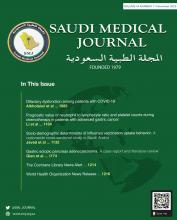Hughes et al,1 from the Hammersmith Hospital in west London, reported in the British Medical Journal (8 October 1983), that the lupus anticoagulant was a useful marker in a subset of patients with systemic lupus erythematosus (SLE) and other connective tissue disorders at risk for the development of thromboembolic complications.1 In the same issue, the same team reported that 5/6 patients with SLE and unexplained pulmonary hypertension, had the lupus anticoagulant in their serum.2 A week later, in an editorial in the British Medical Journal, Hughes wrote ‘in some patients, 3 apparently unrelated clinical features of SLE - recurrent venous thrombosis, central nervous system disease (including myelitis), and recurrent abortions - have common pathogenic mechanisms’.3 He added ‘The serological abnormality common to some (but not all) of these patients is a circulating anticardiolipin antibody responsible for the positive Wassermann reaction or so called false positive serological test for syphilis’.
Over 25 years, Laurell et al4 recognised that patients with SLE with biological false positive Wassermann reactions also had a high incidence of another antilipid antibody - so called “lupus anticoagulant”.4 The link was the anticardiolipin antibodies detected by radioimmunoassay in the sera of those patients with SLE and thrombosis and the study was published in the Lancet issue (26 November) in 1983.5 November 2023 marks the 40th anniversary of the first description of antiphospholipid syndrome (APS) by Hughes et al, a culmination of a decade of research.
In 1994, at the 6th International Antiphospholipid Conference in Louvain, APS was given the name Hughes syndrome in recognition of the work of Hughes and his team. Initially, APS was first recognized in patients with SLE. Subsequently, sole or primary APS was found to be equally as common. It appears to affect at least one in 2000 people.
The APS is an immune mediated thrombo-inflammatory disease driven by circulating autoantibodies that recognize phospholipids and phospholipid binding proteins on cell surface. This leads to an increased risk of thrombotic events, pregnancy morbidity, and various other complications. It is unique in linking the vascular system, the immune system, and a prothrombotic state. The pathology is not a vasculitis but a vasculopathy. It is present if at least one of the clinical criteria and one of the laboratory criteria are met. The 2 main types of APS are the obstetric morbidity and vascular thrombosis. Preterm delivery for pre-eclampsia with severe foetal growth restriction is likely the most specific obstetric criterion for APS. Foetal death at ≥10 weeks’ gestation has been found to be associated with the presence of a lupus anticoagulant and anticardiolipin antibodies but not with the presence of aβ2GPI antibodies. The association between early recurrent abortions and antiphospholipid antibodies is not strong and requires further studies for a better definition. Thrombosis can involve arteries, veins and small blood vessels. Thrombocytopenia and autoimmune haemolytic anaemia are nonthrombotic manifestations of APS and may be more common in children.
The diagnosis of APS requires the presence of antiphospholipid antibodies on ≥2 occasions for ≥12 weeks apart, identified as one or more of the following: lupus anticoagulant, moderate to high titre anticardiolipin or anti-β2GPI antibodies of IgG or IgM isoforms.
Other clinical features of APS are summarised in Table 1.
- Other clinical manifestations of antiphospholipid syndrome.
A small number of patients with APS develop a systemic rapidly progressive thrombo-inflammatory state with vascular thrombosis in multiple organs mainly the central nervous system, kidneys, and the skin. This, catastrophic APS, is associated with high mortality.
Currently, vitamin K antagonists are the main treatment of thrombotic APS. There are other emerging therapies.
Although many diseases and syndromes were described during the 20th century, the 2 diseases that had a significant effect on patients were human immunodeficiency virus (HIV) and APS. The diverse clinical presentations and the involvement of almost every organ in the body, its easy detection and its effective treatment has had an important and unique impact in clinical medicine crossing many specialties including obstetrics.
Professor Hughes continues to do charitable work for patients with SLE and APS. He is Honorary Life President of Lupus UK and leads the Hughes APS International Charity. The latter promotes education for the public and clinical staff on APS.
Heart felt and warmest wishes to Professor Hughes and his team on the 40th anniversary of the disease that bears his name.
- Received September 24, 2023.
- Accepted October 10, 2023.
- Copyright: © Saudi Medical Journal
This is an Open Access journal and articles published are distributed under the terms of the Creative Commons Attribution-NonCommercial License (CC BY-NC). Readers may copy, distribute, and display the work for non-commercial purposes with the proper citation of the original work.






